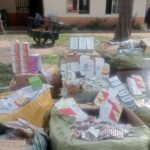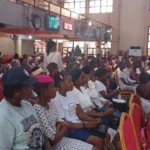NALDA collects 25,000 litres of rabbits’ urine for production of fertiliser
By Bukola Adewumi The National Agricultural Land Development Authority (NALDA) says it has collected over 25,000 litres of urine from over 5,000 rabbits for production of organic fertiliser. Prince Paul Ikonne, Executive Director of NALDA, made this known, in a statement, on Monday in Abuja. Ikonne said that the agency’sContinue Reading











